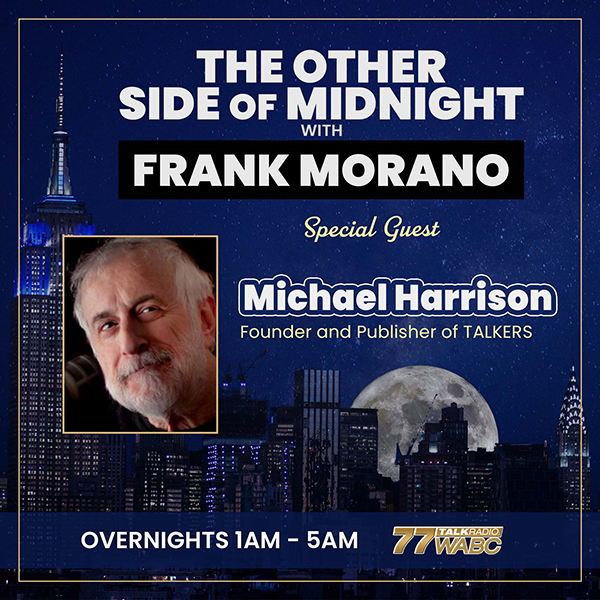
TALKERS founder Michael Harrison appeared as a guest Wednesday on Frank Morano’s “The Other Side of Midnight” show (3/13) as part of his current “Scammers” interview tour promoting the new Gunhill Road “Damn Scammers (Get Off My Phone)” music video (www.scammersvideo.com). The conversation illuminated Harrison’s concerns about the rapid spread of scamming and fraud in the digital space but quickly expanded to a discussion about the pros and cons of AI and an existential look at the future of the radio platform itself.
Regarding the insidious growth of scams on the internet, Harrison said, “It is a major problem up there with terrorism, inflation, street crime, pandemics, uncontrolled immigration, and war… it’s corroding the quality of our lives, lowering the bar on integrity, and raising the level of disingenuousness that is becoming a ‘normal’ part of our culture.” Harrison attributes a major part of the problem to legislators being behind the curve on this, stating, “Historically, it takes time for legislation to catch up to changes in technology… now that technology is changing so rapidly it’s increasingly difficult for legislators to keep up with it. In many cases they don’t even have a clue as to how the internet operates.”
Regarding the issue of AI stealing jobs from broadcasters – particularly talent – going forward, Harrison was blunt: “Just like all technology, AI is a double-edged sword and can be dangerous. But in the case of art, people have always accused new technologies in art as somehow being fake and ‘cheating’ but history has consistently shown that today’s technology is tomorrow’s art. Regarding the loss of jobs for radio talent, it all depends on what you bring to the table. If you are a basic announcer, meaning you read most of your content from a script or apply a very limited range of verbiage such as time, temperature, news and the simple intros and outros of songs – watch out, you will likely lose your job. But if you’re a talk show host, analyst, interviewer, or commentator – all you have to do is work a little harder… you have to be even more original. AI can only draw upon and synthesize what’s already out there. You’ll have to stay ahead of the AI learning curve. All AI can actually do is realistically recreate monologues and dialogue that are in the category of worn-out talking points. If that’s what you are currently doing on the air, you’ll be replaced by AI and no one will notice.”
Regarding the future of radio and its ongoing viability in the digital era, Harrison said that it depends on whether those of us in the industry actively create radio’s relevant future or abandon it out of fear or simple lack of ideas. Harrison warned, “The use of ‘audio’ as a description of this medium is short-sighted. Radio is an esthetic… complex and organic. All radio is audio but not all audio is radio. Putting up a sign on radio calling it audio would be like owning a restaurant and calling it ‘food’ or a specific brand car dealership and calling it ‘transportation.’” Listen to the interview here
Share this with your network




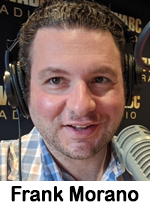 election earlier this year. Morano says in a statement, “As someone who spent years behind the mic listening to New Yorkers and elevating their voices, I’ve never lost sight of who I work for. That’s why I ran a campaign rooted in community, not consultants. While others poured money into cookie-cutter strategies, I made it a point to invest in local radio, where real Staten Islanders are tuning in. I stayed a regular voice on Sid Rosenberg’s show on WABC and Arthur Aidala’s show on AM 970 — two stations I used to work at and still believe in. My predecessor, Joe Borelli, took his talents to the airwaves as a frequent host and TV panelist. I’ve taken a different path — bringing that same microphone-to-community connection straight to City Hall.”
election earlier this year. Morano says in a statement, “As someone who spent years behind the mic listening to New Yorkers and elevating their voices, I’ve never lost sight of who I work for. That’s why I ran a campaign rooted in community, not consultants. While others poured money into cookie-cutter strategies, I made it a point to invest in local radio, where real Staten Islanders are tuning in. I stayed a regular voice on Sid Rosenberg’s show on WABC and Arthur Aidala’s show on AM 970 — two stations I used to work at and still believe in. My predecessor, Joe Borelli, took his talents to the airwaves as a frequent host and TV panelist. I’ve taken a different path — bringing that same microphone-to-community connection straight to City Hall.”  Morano. Lionel comments, “I’m honored beyond words to be back at WABC – where it all began, my alma mater, the greatest talk radio station in the world. Legendary, historic, storied, unmatched in its legacy. This isn’t just radio, it’s home. It’s the gold standard, the birthplace of giants. And now, I’m back where I belong.”
Morano. Lionel comments, “I’m honored beyond words to be back at WABC – where it all began, my alma mater, the greatest talk radio station in the world. Legendary, historic, storied, unmatched in its legacy. This isn’t just radio, it’s home. It’s the gold standard, the birthplace of giants. And now, I’m back where I belong.”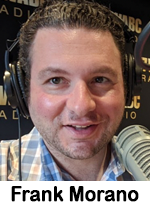 successful there, will have a general election campaign to run in the fall for the next term. Morano issued a statement over the weekend regarding his status. He said, “When I was elected, I had expected to continue hosting my radio show until the swearing-in. However, due to concerns about equal-time rules for the upcoming election and uncertainty around what outside work I’ll be allowed to do once I take office, the decision was made that I would no longer host ‘The Other Side of Midnight’ and would step away from the Red Apple Audio Network for now. This wasn’t a decision I made lightly—or one I made at all, frankly—but I completely understand the reasoning behind it. I’m incredibly grateful to the station’s ownership and management for the opportunity to do a show I loved, with a team I respected, for an audience I adored… I do hope to be back on the radio in some form soon. But for now, I’m off the air.
successful there, will have a general election campaign to run in the fall for the next term. Morano issued a statement over the weekend regarding his status. He said, “When I was elected, I had expected to continue hosting my radio show until the swearing-in. However, due to concerns about equal-time rules for the upcoming election and uncertainty around what outside work I’ll be allowed to do once I take office, the decision was made that I would no longer host ‘The Other Side of Midnight’ and would step away from the Red Apple Audio Network for now. This wasn’t a decision I made lightly—or one I made at all, frankly—but I completely understand the reasoning behind it. I’m incredibly grateful to the station’s ownership and management for the opportunity to do a show I loved, with a team I respected, for an audience I adored… I do hope to be back on the radio in some form soon. But for now, I’m off the air.  added to the program schedule at Nexstar Media’s WGN, Chicago beginning Monday (7/15). WGN Radio VP and general manager Mary Sandberg Boyle says, “‘The Other Side of Midnight with Frank Morano’ is engaging, creative, and lively – a trifecta not often found in late night radio shows.”
added to the program schedule at Nexstar Media’s WGN, Chicago beginning Monday (7/15). WGN Radio VP and general manager Mary Sandberg Boyle says, “‘The Other Side of Midnight with Frank Morano’ is engaging, creative, and lively – a trifecta not often found in late night radio shows.” 
 Republican New York 3rd Congressional District representative George Santos appeared on Frank Morano’s “The Other Side of Midnight” program on Red Apple Media’s WABC, New York. Santos tells Morano that he’s writing a book that will detail everything that’s happened to him during his time in Congress. Morano tells TALKERS Santos “went off on his colleagues, says he’s making a ton of money on Cameo and will one day return to Congress.”
Republican New York 3rd Congressional District representative George Santos appeared on Frank Morano’s “The Other Side of Midnight” program on Red Apple Media’s WABC, New York. Santos tells Morano that he’s writing a book that will detail everything that’s happened to him during his time in Congress. Morano tells TALKERS Santos “went off on his colleagues, says he’s making a ton of money on Cameo and will one day return to Congress.” 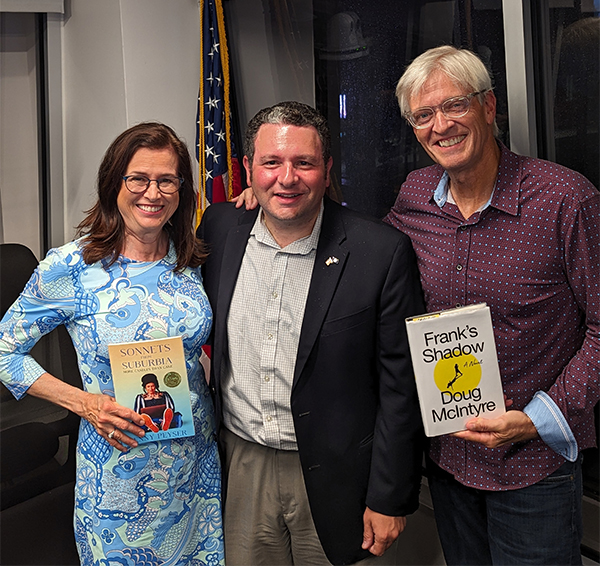
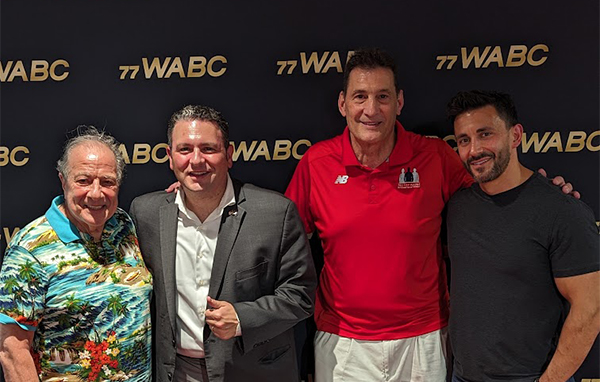
 Election Coverage; Curtis Sliwa: Closing of Lenny’s Pizza for Best Personality, Social Media; and “The Other Side of Midnight” host Frank Morano’s interview with William Shatner for Best Podcast. Red Apple Media CEO John Catsimatidis says, “I am proud of our talent and all station personnel that have worked hard to make 77WABC the station it once was. Our talent and staff are leaders in their field; our on-air personalities include the biggest names in New York. We’re just getting started. There is always more to come from the iconic 77WABC.”
Election Coverage; Curtis Sliwa: Closing of Lenny’s Pizza for Best Personality, Social Media; and “The Other Side of Midnight” host Frank Morano’s interview with William Shatner for Best Podcast. Red Apple Media CEO John Catsimatidis says, “I am proud of our talent and all station personnel that have worked hard to make 77WABC the station it once was. Our talent and staff are leaders in their field; our on-air personalities include the biggest names in New York. We’re just getting started. There is always more to come from the iconic 77WABC.” down for next Wednesday, so I have the distinction of being honored. In all seriousness, I’m a big supporter of this organization and quite humbled that they picked me to be honored, so I’m hoping not to be too disappointing in terms of getting people to come and/or volunteer.” Morano is host of “The Other Side of Midnight” on the Red Apple Media talk station.
down for next Wednesday, so I have the distinction of being honored. In all seriousness, I’m a big supporter of this organization and quite humbled that they picked me to be honored, so I’m hoping not to be too disappointing in terms of getting people to come and/or volunteer.” Morano is host of “The Other Side of Midnight” on the Red Apple Media talk station.